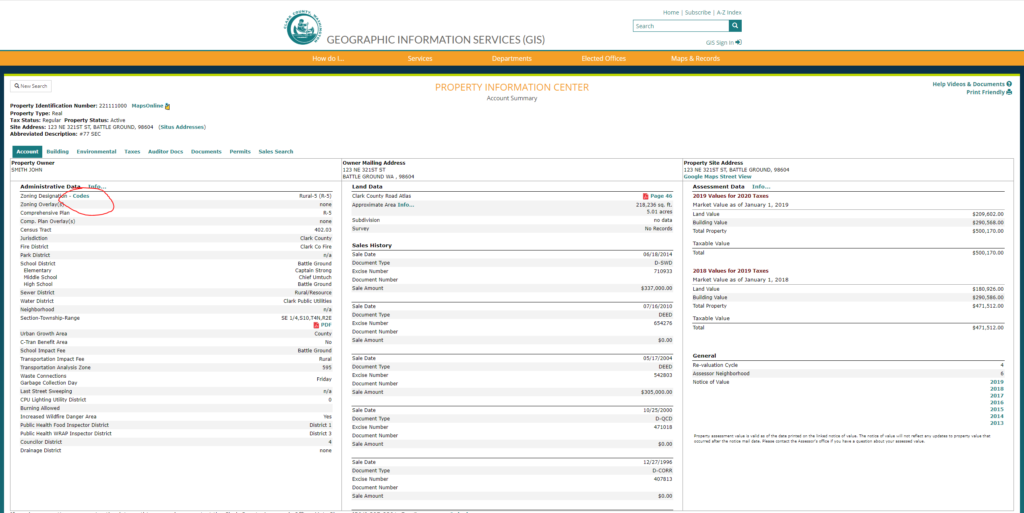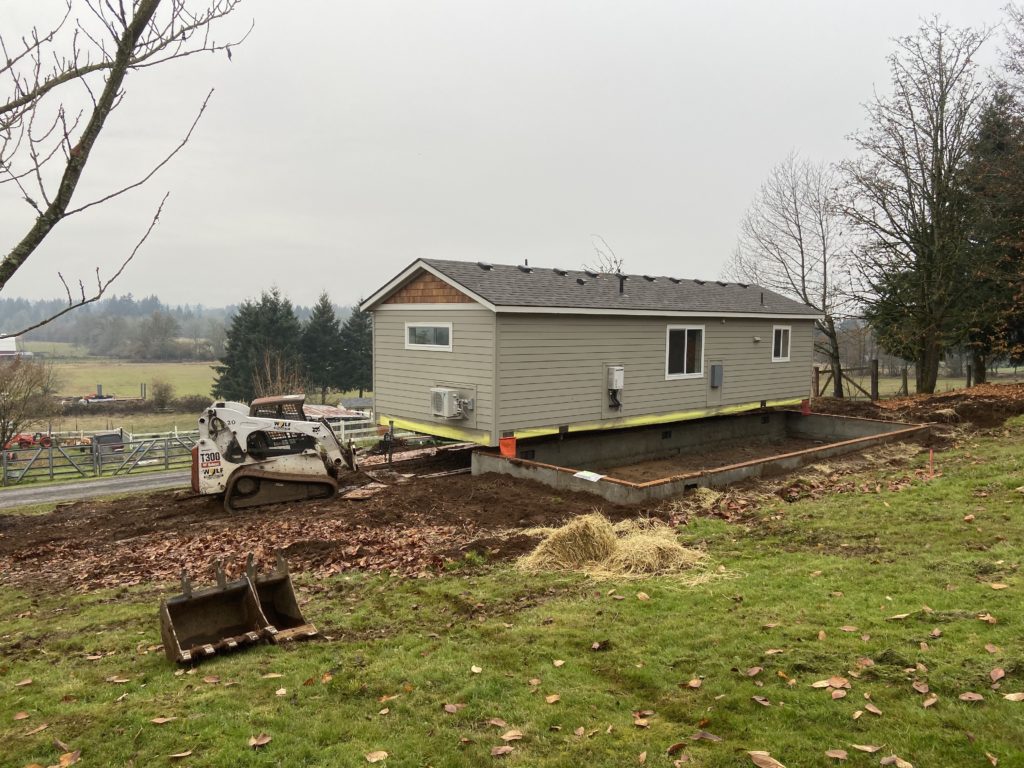Assessing which jurisdiction to report to
The first step to applying for your permit in Vancouver is to do your research. You’ll need to determine if your project is permittable in the City of Vancouver or in its parent jurisdiction, Clark County. You can find the city’s zoning and code information for you property in either situation on the Clark County GIS website where you can search for the address of your property. You’ll be taken to your properties Property Information Center page, then select the link labeled “code” next to your zoning designation.

For those in the Vancouver jurisdiction, accessory dwelling units are currently code for your Vancouver property address. Property owners that find they do not live within the city limits will follow a different ADU permitting process for Clark County. If you have questions regarding your property or the feasibility of your project, you can visit the City of Vancouver Community Development office located at 415 W 6th ST, Vancouver, WA 98660 or email your questions to the permit center. There are also a few private resources available, such as our ADU experts, whom have seen hundreds of permits through to completion.
Meeting Vancouver’s ADU development standards
In the City of Vancouver jurisdiction accessory dwelling units are currently allowed in all residential zones if the city’s development standards are met. Here’s a summarized list of what they refer to:
- ADUs can be attached or detached from the primary residence.
- The ADU can be 800 SF or up to 50% of the primary dwelling unit’s total square footage, whichever is less.
- From the view of the front of the lot, the ADU can not comprise of more than 50% of the total façade area of the primary structure and outbuildings.
- The ADU must be architecturally compatible with the primary dwelling unit.
In order to determine if your project is allowable, please see the City of Vancouver code for Accessory Dwelling Units here https://vancouver.municipal.codes/VMC/20.800. Or speak with a planner at the City of Vancouver Community Development office.

Once you’ve determined your project is permittable, you’ll need to have a digital version of your documents prepared and saved. These will include, but may not be limited to, appropriate City of Vancouver application forms, a plot plan showing your property and all structures, existing and proposed and your builder’s plan set with engineering.
It’s important to make sure that your builder’s plan set includes elevations, a floor plan, structural plans, engineering, calculations, truss plan, floor joist plan, and a WA state energy code worksheet or Manual J.
Starting the permitting process
Once these documents are prepared you can apply for your permit using these easy steps:
- Email your application to ePlans@cityofvancouver.us. Once they receive and verify your application, the city will respond with your application numbers and associated fees. When you’ve received this information, you can follow their instructions to complete step #2.
- Pay your fees online or mail in a check. To pay your fees online you’ll need to set up an epermits account.
- Once your fees are paid, you’ll receive an emailed invitation to upload your documents. You’ll then upload your documents using the link provided in the email.
When your application, fees and documents have been received, the City of Vancouver will begin their review process. You may receive requests to provide additional information or corrections to your documents. This process typically takes 3-4 weeks in the City of Vancouver.
Your ADU permit has been approved – now what?
Once your permit has been approved and issued, it’s important to print a copy of your approved documents along with your permit to keep at your construction site location. Your contractors and inspectors will need to have these available to them during your build. For more detailed information on the accessory dwelling unit permitting process please visit the City of Vancouver’s Building and Permitting Services page.